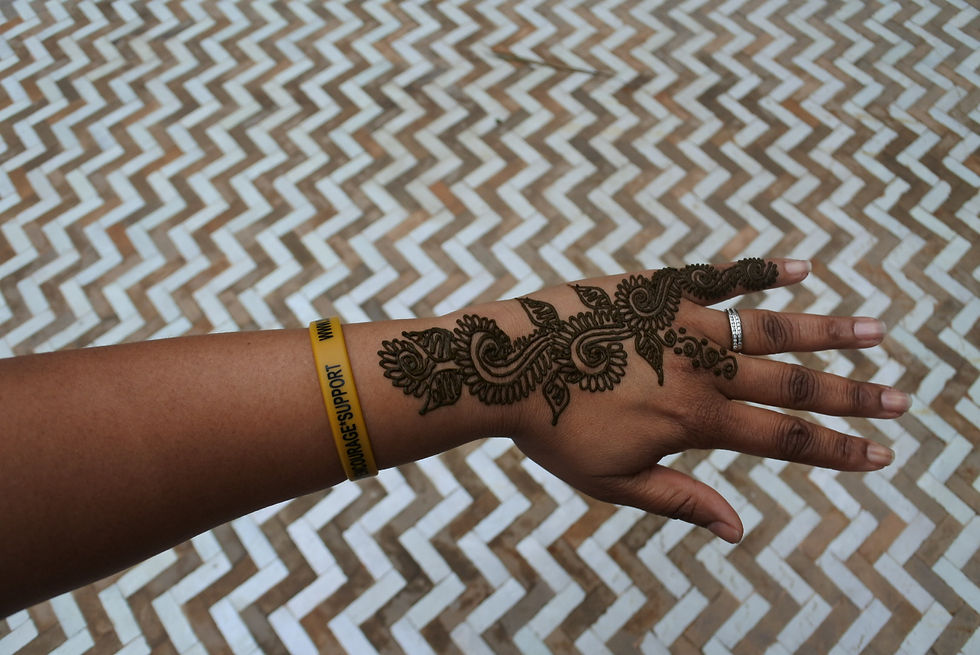When it comes to haggling, choose your battles
- aymexume
- Sep 22, 2017
- 4 min read
I like to haggle, but I know when to stop. I know that I know when to stop because no one has ever hurled stones at me or ever resorted to any form of violence to get me to pay a fair price. The viral video recorded by a tourist in Asia triggered this reflection. When I saw the headline, my knee-jerk reaction was: another privileged tourist acting a fool. What really raised a red flag was that the video only showed the part where she, the tourist, looks like the victim and her host looks aggressive. Upon reading more about the story, it became clear that the video we were privy to didn’t really provide a full account of what went down. We could chalk it all up to bad behaviour on the part of the tourist. But we know better. I kept on asking myself whether or not this lady would have refused to pay her host, say, in the Alps because she thought she was being over charged. The answer, and I’m really going out on a limb here, is a resounding no. There are enough comments on social media about that lady and her penny-pincher ways. Now that I’ve given my two cents (pun absolutely intended), we can talk about how to haggling can be a civilized exchange between two human beings. May I mention how proud I am of my haggling skills? I’m far from being the best, but I’ve come a long way. (Check out my $40 leather backpack from Colombia. I haggled in Spanish! I’m prouder of the fact that I was able to practice my Spanish than I am of the deal I made.)

I’m relatively new at haggling. Growing up, my mother stopped taking me to the market because I’d step right in the middle of her parley with the merchants. I’d basically tell her that the item was worth the price asked and that I didn’t see how the vendor would manage to raise a family with the proceeds of their sales. The merchants would then ask her to listen to her wise daughter. Yeah, I was that kid. My mom was often torn between her will to let me express myself and her annoyance with my lack of discernment. Haggling seemed unfair to me—and, to a certain degree, it still does. The merchants seemed to need these extra gourdes [Haiti’s currency] more than my mom. Well, I thought my mom could afford it. But, as a single mother raising 2 children, sometimes, every gourde mattered to her too. But I wasn’t fully aware of this. Then, I started to travel. And haggling became a fun way to interact with local vendors. And I slowly became aware of its more social side. The polite back and forth. The smiles and laughter. The fake hesitation on my part. Because, let’s be honest, if I’m going through all these hoops, I’m going to buy the item in the end. I don’t really like shopping, so I tend not to waste my time. The vendors’ quick, and often creative, repartees. Their ability to read people—or are they only able to read me (?). It’s a slow dance where both parties know the steps and the rhythm. As a tourist, I'm fully aware that I'll be over charged. It's not fair. But it comes with the territory. My objective isn’t to obtain the best of deals, I mostly aim at minimizing the level of my being overcharged. And it happens everywhere. Think of all the tourist traps. Think about how expensive food can be in touristy areas. Think about the entire industry built around tourism. Do you really think the cheap Eiffel Tour replicas are worth that much? I've paid too much for cab fare, food, souvenirs. You name it! Tourists get overcharged. It's a fact of life. Even when I go back home to PauP my status as a dyaspora renders me vulnerable to overpricing. When I go on my usual souvenir run, vendors adjust their prices accordingly. I know because my sister will go to the same locations and the negotiations will start at a lower point. That feeling of foreignness in my homeland sucks. But such is life. Haggling in and on itself isn’t a bad thing. In fact, it’s often part of the culture. It becomes a negative practice when tourists try to benefit from people’s perceived desperation. One thing to be mindful of is where we tend to haggle and why. If you find yourself only haggling in third-world or developing countries, ask yourself why. That being said, if the items don't have a price tag, haggle away! It's a clear indication that prices are negotiable. What you shouldn't do is:
1) walk into a store where prices are clearly indicated and start haggling. If you won't do it at the Bay or Macy's, don't do it there;
2) expect prices to be the same throughout the country. The more remote a location, the higher the prices; and
3) disrespect vendors. If you can't agree on a price, walk away.
Personally, the lesson penny-pincher thought me is to agree on a price before you eat, especially of said prices aren't indicated in a menu.





Comments